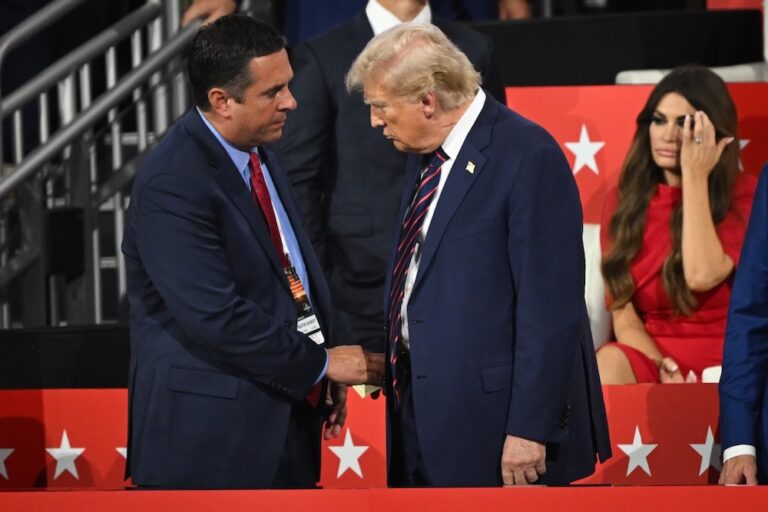Deals like the Trans-Pacific Partnership have been negotiated in almost complete secrecy, enabling these agreements to include extreme copyright and other digital policy provisions.
This statement was originally published on eff.org on 13 January 2015.
Senators are now working around the clock to re-introduce a bill that would put trade agreements on the fast track to passage in the US after those deals are finalized. Deals like the Trans-Pacific Partnership (TPP) and the Trans-Atlantic Trade and Investment Partnership (TTIP) have been negotiated in almost complete secrecy, except for private industry advocates serving on trade advisory committees who can read and comment on these texts. That has enabled these agreements to include extreme copyright and other digital policy provisions that would bind all signatory nations to draconian rules that would hinder free speech, privacy, and access to knowledge. Under fast track, also referred to as Trade Promotion Authority, lawmakers would only have a small window of time to conduct hearings over binding trade provisions and give an up-or-down vote on ratification of the agreement without any ability to amend it before they bind the United States to its terms.
One of the most sure-fire ways to block these secret trade agreements is to stop the passage of fast track. We cannot let US lawmakers shirk their constitutional responsibility over trade policy and let the White House and the US Trade Representative pass Internet rules in back room meetings—which continue to go on this very week. The TPP negotiations will likely remain completely closed off from the public until the deal is finalized. At that point, fast track would enable the US Trade Rep to get Congress to ratify the deal without lawmakers questioning or modifying it.
And while Europe is taking reasonable steps to release more information about TTIP, US trade officials haven’t made a move. The US Trade Rep just released its latest fact sheet on transparency, grossly exaggerating the meager steps it has taken to allow public interest groups like EFF to engage in these negotiations. For instance, it touts the “stakeholder events” it has organized, where civil society had an opportunity to meet and present to negotiators about our concerns with certain provisions. These events were better than nothing, but they were far from sufficient—not only were we only able to present about provisions we had never been allowed to see, we were given very little time to present. Moreover, they haven’t held stakeholder events at their negotiation rounds for more than a year now.
The US Trade Representative is deluded enough to think that this process has already been transparent enough—and its views about the substantive merits of the copyright and patent policies it is pushing are similarly narrow and delusional. What will happen if fast track passes and even Congress no longer has the ability to hold hearings on the final text and keep these trade officials in check?
Fast Track Politics on the Hill
The White House and several Congress members are going to introduce a fast track bill in the coming weeks. Republicans seem to be more in favor of fast track than their Democratic counterparts, which means Republican control of both congressional chambers could mean the bill could sail straight through to approval. But there’s also criticism among some lawmakers and a large coalition of lawmakers who are committed to fight it. Sen. Elizabeth Warren and Sen. Bernie Sanders have been vocally opposed to handing away such blanket powers to the Executive branch. And on the House side, Rep. Rosa DeLauro and other representatives organized a press event last week to announce their opposition to fast track. But while there is a movement to stop TPP and TTIP from being put on the fast track, it’s still going to be a close vote. We can’t risk the possibility that these deals could pass and bind our lawmakers to enact or maintain new draconian copyright rules. Lawmakers need to hear that users are vehemently opposed to Internet regulations being decided in secret trade negotiations.
How We Can Stop Fast Track
Sen. Ron Wyden now sits as the Ranking Member of the Senate Finance Committee, where he holds significant influence on how this version of fast track will look. His colleague, Senate Finance Committee Chair Sen. Orrin Hatch, introduced the bill that was defeated last year. Sen. Hatch is determined to pass a new version with superficial fixes that do nothing to address the secrecy or the private-industry-dominated process. That’s why we have a petition directed at Sen. Wyden, calling on him to resist these weak compromises and reject any version of this bill that does not truly address these problems. As a long-time defender of digital rights and an outspoken critic of TPP’s secrecy, we need to let him know that we’re counting on him to stand up for Internet users at this critical time.
If and when the bill is on the floor, our next step is to pressure Congress members to oppose it and encourage their colleagues to vote against fast track. Many lawmakers may support the policy in order to not appear to oppose free trade, but these new omnibus trade agreements are about much more than that. They contain provisions that will have huge implications for our digital rights in the generations to come. That’s why we’ll need to bombard them with messages letting them know about these threats, and to call on them to defend users against secret deals.
Last year, a massive coalition of civil society organizations and individuals banded together to fight back against this undemocratic process and we defeated it. We can do it again this year, but we’re going to need all the help we can get.


